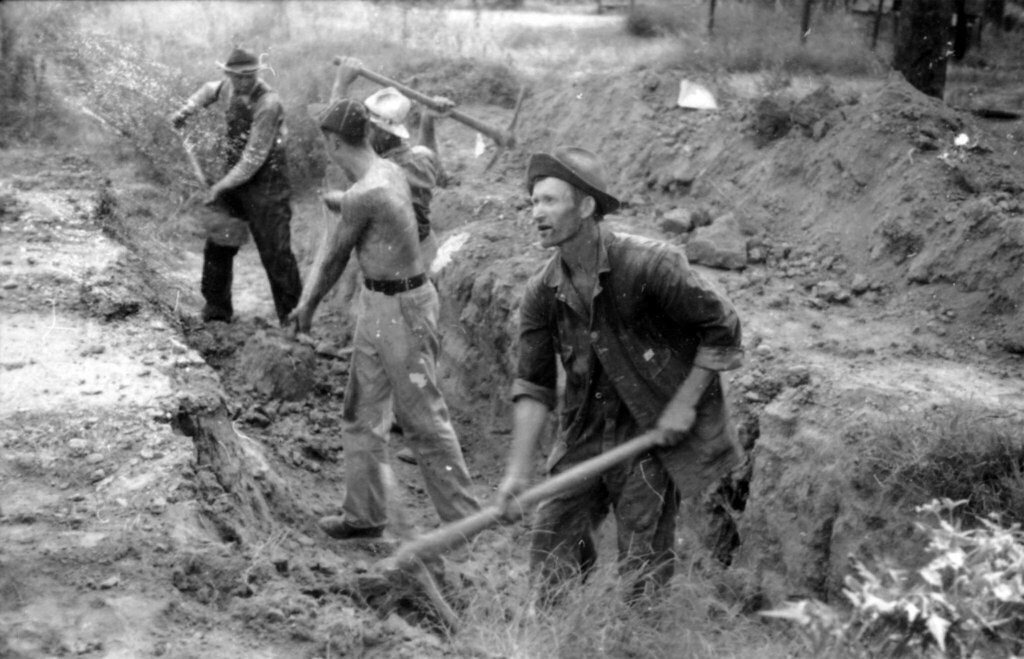Information Technology professionals and other office workers often treat physiology and health and diet and exercise as something completely outside and divorced from the realm of their work. You may use some caution during your day in the office regarding what you eat and you may take some time during a lunch break to do a “workout,” but the link between what you do for yourself in regard to your physical condition and how you perform as an office worker is typically overlooked. It is pretty well documented that employees who take care of themselves produce more and are generally happier and more productive. It’s also intuitive that better health means less sickness and fewer hindrances to doing a good job. These figures and assertions, while true, understate the reality of the importance to thought-workers of physical condition. I have said before that as a person using your mind to do work requiring deep thought and analytical skill combined with focus, that your body is supporting hardware for the CPU, memory and storage that is your brain. Your organs, bones, digestive system sweat glands and the rest of your body are like the motherboard, screws, power supply, fans and heat sinks helping your mind to operate. If they aren’t in proper operating condition, or even if they are in suboptimal operating condition, the machine that is you will not perform to its capabilities.
It has been said 70% of maintaining a desired physical condition is controlled by diet. I think that is an underestimate and that nutrition is of paramount importance. Despite this assertion and the relative dominance of what you eat, your activity level and your type of activity are also critical to the operating condition of your supporting hardware (and this hardware that is supporting in the operation of the software called your mind is primary in other things (like sports and recreation and little stuff like keeping you alive)). This is a long way of saying that exercise matters and raises the important question as to what type and how much exercise a thought-worker should do.
What is exercise?
Before digging too deeply into type and amount of exercise, it would be beneficial to stop and consider the nature of exercise and why one would want to engage in it. John Little and Dr. Doug McGuff, the authors of my favorite book regarding physical training (Body by Science), offer this definition:
Exercise: A specific activity that stimulates a positive physiological adaptation that serves to enhance fitness and health and does not undermine the latter in the process of enhancing the former.
Little, John R.; McGuff, Doug (2008-12-17). Body by Science: A Research Based Program to Get the Results You Want in 12 Minutes a Week (p. 3). McGraw-Hill Education. Kindle Edition.
This is pretty close to how I would define the term. I’d modify it only slightly in adding that it is activity with the intent to stimulate positive adaptation rather than that it does. There are a lot of people who do a lot of “exercise” that does more harm than good toward trying to improve physical condition. Little and McGuff acknowledge this and are more explicit about it than any other treatment I have seen and it is only in this definition that I offer a modification, not in their sentiment. According to their definition, activity that is unproductive or counterproductive wouldn’t count as exercise. I’d call it exercise, but qualify it as counterproductive exercise. I typically also go further in that I don’t usually use terms like “exercise” and “workout” that sound aimless and like mere activity to describe what I do. I much prefer to call activity designed to yield a positive result “training.” It’s also important to note that “positive” and “harm” and “good” and “productive” here are all subjective terms. This means that in order to have a positive result from any intervention, whether it be exercise, diet, meditation, or anything else, there needs to be an objective against which results can be compared.
What is the objective?
Fitness is a term often used to describe the state of being in sound physical condition. It’s a term I both love and hate. I think it’s great because taken literally, it expresses exactly what I think we should be after. I hate it because it’s frequently used to refer to an appearance or something superficial that doesn’t really mean anything. Whatever source Google uses for the definitions it presents gives a few definitions for fitness
- “the condition of being physically fit and healthy”
- “the quality of being suitable to fulfill a particular role or task”.
- “an organism's ability to survive and reproduce in a particular environment”
The first of these definitions is the vague and useless use most often associated with using the term (at least in terms of physical condition). This is the non-definition I hate. The third is really just a special case of the second – the second is generally about being fit for some role or task and third is the second where that role or task is survival and reproduction. It is the second definition I really like and that tells the story (or at least, asks the right question) of what it is we are after in dealing with the condition of the body and mind. Definition 2 really gives us no answers as to the objective of training or why fitness is important, but points out that there is a question most of us aren’t asking with regard to fitness – the question that is critical if we want to achieve fitness that will aid in the achievement of our goals and the improvement of our lives: If you want to be suitable to fulfill a particular role or task, what role or task is it for which you want to be fit?
You see, I don’t think fitness means any one thing and I think it’s different for different people. I can tell you several things fitness is not. It’s not a number on a scale representing the force with which the earth attracts your body (your weight). It’s not a percentage of body mass composed of fat. It’s not the visibility of your abdominal muscles.
Ok, it may be the visibility of your abdominal muscles if vanity is what really matters to you and/or if it helps you to attract a mate and reproduce (though the mate attracted by only this is typically not the best choice anyway). It may be your weight if what matters in qualifying for some athletic contest where you need to fall within a certain weight range. Typically, through, these are not the things that are truly important. Losing weight is fine for you to have as a goal if the amount of force exerted on your body by the earth is what really matters to you. I doubt that’s the case.
My objectives on what I want for my body are these things:
- Don’t die for a long long long long long long long time
- Feel good
- Sustained energy to play with my children and be present for my family
- Cognitive performance for mental achievement and a general kicking of ass in things like creating software and consumable content and making life better for those with whom I do business or interact in other ways
- Sustained energy to work and provide for my family while at the same time providing value to consumers, customers, clients, protégées, mentors, and anyone else involved with me and my work/products/content
- Proper functioning of my sexuality and healthy (read: incessant) sex drive
- Sustained energy to exercise my sexuality in life-enhancing and enjoyable ways
- Athleticism to be able to compete successfully in activities
It is not on my radar to “look good naked”. I like looking good naked and given the choice between looking good and looking bad, I’ll take the former, but it’s not of great importance to my outlook. I do not object to anyone for whom that is a real priority, but I argue that for most of us, that’s a superficial concern and its achievement is more a reflection of a healthy and fertile organism, rather than an end in and of itself. Though I do not object if that is what matters to you and I do not intend this to be judgment, I will call it what it is: plain and simple vanity. I acknowledge that if I had not yet selected and attracted my mate and successfully reproduced, I might see this differently. Likewise, the number I see on the scale is not something that matters to me. It tells me a minute piece of what is happening in my overall system and is extremely easy to measure (especially when I have a scale connected to my wireless network and it automatically records my weight and body composition into a Google spreadsheet and will shame me publicly if my weight goes too high and all I have to do is step on it) and is therefore useful, but it is not an end in and of itself.
I include sexuality in my list of things that are important for two reasons: First, it is fun and enjoyable and makes life better to exercise and experience sexuality. Second, fertility is a great proxy for the overall health and well-being of an organism. Dysfunction in fertility is typically a manifestation of a more serious problem and properly functioning fertility typically reflects health. Tim Ferriss, in The 4-Hour Body, summarizes this idea well:
My general guideline, what I refer to as “Darwin’s Rule,” is simple: eat for optimal fertility and everything else falls into place. Moreover, if you eat for optimal fertility, you will have high-level athletic performance and what most define as optimal health.
Ferriss, Timothy (2010-12-14). The 4-Hour Body: An Uncommon Guide to Rapid Fat-Loss, Incredible Sex, and Becoming Superhuman (Kindle Locations 9391-9393). Crown Publishing Group. Kindle Edition.
I shared my objectives for what I want out of my body and why I train it. I now invite you to share yours. Please leave comments indicating your priorities on what you want from your body.
Wasting Energy
“How many calories did you burn?” This seems to be the mantra of those with an interest in training the body to yield a desirable result. It’s also a misguided focus. Using a scale to track the weight of a person is nice and convenient and easy to measure. It’s also straightforward to track intake of calories (not difficult to do, but cumbersome to perform on a consistent and ongoing basis - simple, but not necessarily easy). The measurability and trackability of these things, though, does not necessarily mean they are of paramount importance, and even if they are, consider what it really means to obsess of energy expenditure, especially in the context of an activity performed for no purpose other than to expend energy. A mindset stating the objective as that of burning calories literally means “I want to waste energy.” Having studied physics, I can tell you that that energy is the capacity for doing work. When used for the purpose of doing useful work, energy is used well. When doing work just to do work, you are doing something along the lines of the proverbial digging ditches and then filling them back in again.

It is my preference to exercise accidentally, rather than deliberately. What I mean by this is that I play with my children. I chase them and they chase me. They use me as a jungle gym and I use them as dumbbells (actually, I used to use them as dumbbells, they have grown and should probably be reclassified as barbells). We have fun and get activity at the same time. This is what exercise should be. I also play basketball and racquetball. These are things I do for fun, enjoyment, and time spent in the company, camaraderie, and competition of men. It is mostly accidental that they are also intense physical activities. In my opinion, treadmills and stair steppers are such a waste of time and energy and you can do so much better and so much more for yourself. There is one activity I do that is strictly for exercise and stimulation of a physical response. That activity is resistance training (also known as lifting heavy weights). This too, could be done by loading and unloading trucks or something with another purpose, but for me, it makes sense to do this in a dedicated fashion because I work with my mind and not my back and I don’t have trucks to unload and I do this training in a very limited and minimalist fashion. More on that to come.
Exercise Minimalism
In medicine, a common objective when trying to use a substance applied to the body via ingestion or some other means is to use the Minimum Effective Dose. In the realm of both software projects and startup companies, people are frequently citing Eric Ries and aiming for launching with the Minimum Viable Product. These are very much the same idea. For a dose to be both minimum and effective, it has to be adequate to yield the desired result, but nothing more. For a software product (or any other type of product) to be both minimal and viable, it needs to have adequate features to be useful and deliver value, but without any additional bells and whistles. Anything less than this pointless and delivers no value and is a waste of what it took to get there (unless this is just a point in progress toward completion of the Minimum Viable Product – “Two shalst thou not count…”). In the case of medicine, anything more is both wasteful and potentically harmful. In the case of a product, anything more before the initial launch does several things. Among these are that it delay’s launch and potentially causes the development of the wrong product – a course that could have been corrected with real feedback from real users following a real deployment, real launch and real use.
Tim Ferriss, in The 4-Hour Body, applies the term Minimum Effective Dose to training. When you think about it, exercise is medicine in a very real sense. It is something applied deliberately to the body with the expectation of stimulating a response for a specific purpose. The objective of any training program, therefore, should be applying the amount of stimulus to the body that will trigger the desired response and no more. This is for several reasons.
- Time is valuable – spending time in mindless exercise with no purpose other than using energy is time that could be spent doing something else more productive and/or enjoyable (opportunity cost)
- Overtraining is a very real thing and it is much more common than you might think. (overdoing exercise can be and is harmful)
- Recovery and adaptation is the most important part of exercise and it is where the magic happens. It also takes a lot longer than the exercise itself and it needs more time to complete successfully.
I have been following the training protocol in chapter 4 of Body By Science and have seen dramatic results. This is the best training program I have ever encountered (and that I can imagine). It takes a mere 12 minutes per week in the weight room. I have not before encountered anything that not only requires so little time, but is also so sustainable and effective. Hitting the weights used to be a struggle for me with spurts of inspiration followed by periods of lackluster interest. With Body By Science, it’s just not a question that I make it for my weekly training session. I highly recommend reading the book and giving it a chance.
Conclusion
Yes, physical activity is important and something that should be exercised in your life. It should not, though, take long amounts of time and should ideally be coupled to things with other purposes to where exercise is not the primary purpose of your activity (at least for a majority of your activity). Exercise is best that is an accidental side-effect of something fun and/or productive. Those activities that are dedicated to training the body should be short, intense, impactful, effective, and infrequent, allowing plenty of time for recovery.

